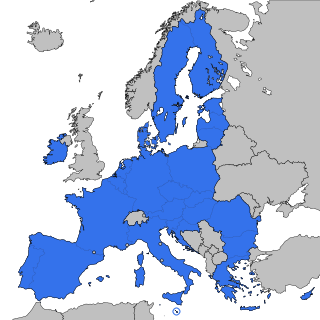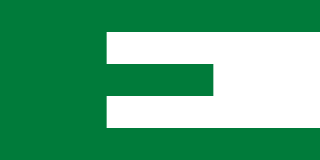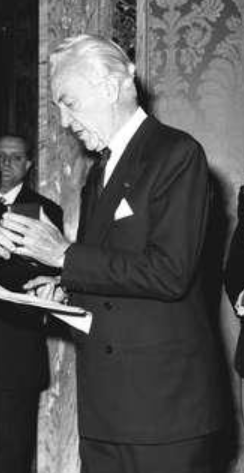
Federalism is a mode of government that combines a general government with regional governments in a single political system, dividing the powers between the two. Johannes Althusius is considered the father of modern federalism along with Montesquieu. He notably exposed the bases of this political philosophy in Politica Methodice Digesta, Atque Exemplis Sacris et Profanis Illustrata (1603). Montesquieu sees in the Spirit of Laws, examples of federalist republics in corporate societies, the polis bringing together villages, and the cities themselves forming confederations. Federalism in the modern era was first adopted in the unions of states during the Old Swiss Confederacy.
The term federalist describes several political beliefs around the world. It may also refer to the concept of parties, whose members or supporters called themselves Federalists.

The federalisation of the European Union describes processes and proposals by which the European Union (EU) could be transformed from an informal confederation into a federation. There is ongoing discussion about the extent to which the EU has already become a federation over the course of decades, and more importantly, to what degree it should continue to evolve into a federalist direction. As of December 2023, the EU has no formal plans to become a federation.

A federation is a political entity characterized by a union of partially self-governing provinces, states, or other regions under a federal government (federalism). In a federation, the self-governing status of the component states, as well as the division of power between them and the central government, is constitutionally entrenched and may not be altered by a unilateral decision, neither by the component states nor the federal political body. Alternatively, a federation is a form of government in which sovereign power is formally divided between a central authority and a number of constituent regions so that each region retains some degree of control over its internal affairs.
A confederation is a political union of sovereign states united for purposes of common action. Usually created by a treaty, confederations of states tend to be established for dealing with critical issues, such as defence, foreign relations, internal trade or currency, with the central government being required to provide support for all its members. Confederalism represents a main form of intergovernmentalism, defined as any form of interaction around states that takes place on the basis of sovereign independence or government.

The Hague Congress or the Congress of Europe was a conference that was held in The Hague from 7–11 May 1948 with 750 delegates participating from around Europe as well as observers from Canada and the United States of America.

The Union of European Federalists (UEF) is a European non-governmental organisation, campaigning for a Federal Europe. It consists of 20 constituent organisations and it has been active at the European, national and local levels since 1946.

Young European Federalists is a political youth organisation. Active in most European countries, it seeks to promote European integration through the strengthening and democratisation of the European Union (EU). JEF has close ties to the European Movement and the Union of European Federalists and is a full member of the European Youth Forum (YFJ).

Altiero Spinelli was an Italian politician, political theorist and European federalist, referred to as one of the founding fathers of the European Union. A communist and militant anti-fascist in his youth, Spinelli spent 10 years imprisoned by the Italian fascist regime. Having grown disillusioned with Stalinism, he broke with the Communist Party of Italy in 1937. Interned in Ventotene during World War II, he, along with fellow democratic socialists, drafted the manifesto For a Free and United Europe in 1941, considered a precursor of the European integration process.

The Crocodile Club was an informal group of members of the European Parliament (MEP) that favoured greater European integration, to the extent of a European federation, and greater powers to the European Parliament.

Count Nicolò Carandini was a leader of Italian post−World War II liberalism and a champion of European Federalism. He was the first Italian ambassador to Britain after World War II, and the first president of Alitalia from its foundation in 1948 until his retirement in 1968.
The Ventotene Manifesto, officially entitled For a Free and United Europe. A Draft Manifesto, is a political statement written by Altiero Spinelli, Ernesto Rossi, and Eugenio Colorni, while they were imprisoned on the Italian islet Santo Stefano of the island of Ventotene during World War II. Completed in June 1941, the manifesto was circulated within the Italian Resistance, and it soon became the programme of the Movimento Federalista Europeo. It called for a socialist federation of Europe and the world. In the text, European federalism and world federalism are presented as a way to prevent future wars. Vayssière notes that the manifesto is widely seen as the birth of European federalism. Spinelli, who was later elected to the European Parliament within the Italian Communist Party lists, became a leader of the federalist movement due to his primary authorship of the Manifesto and his postwar advocacy. The manifesto called for a break with Europe's past to form a new political system through a restructuring of politics and extensive social reform. It was presented not as an ideal, but as the best option for Europe's postwar condition.

This article aims to cover ideas of European unity before 1948.

The European Federation, also referred to as the United States of Europe (USE), European State, or Federal Europe, is a hypothetical scenario of European integration leading to the formation of a sovereign superstate, organised as a federation of the member countries of the European Union (EU), as contemplated by political scientists, politicians, geographers, historians, futurologists and fiction writers. At present, while the EU is not a federation, various academic observers regard it as having some of the characteristics of a federal system.

Ursula Hirschmann was a German anti-fascist activist and an advocate of European federalism.
The Centre for Studies on Federalism (CSF) was established in November 2000 with the primary purpose of studying and researching the theory and practice of Federalism both as a political doctrine and in its implementation in the institutional systems of the Modern state. CSF's main focus is on the infra-national, macro-regional and global scale of federalism: it specifically considers regional integration at a time of globalisation, with special reference to Europe, its history and civilization, its progress towards unification and its future.

The Spinelli Group is an initiative founded with a view to reinvigorate the endeavour for federalisation of the European Union (EU), by creating a network of citizens, think tanks, NGOs, academics, writers and politicians who support the idea of a federal and united Europe. Among other goals, the Group aims to "find a federal majority [among members of the European Parliament] on important subjects." Founded on 15 September 2010 in the European Parliament (EP) in Brussels, the group is named after Altiero Spinelli (1907–1986), founder of the Union of European Federalists (UEF) and a founding father of the European integration.

Italian Council of the European Movement is an Italian advocacy group.

The World Federalist Movement/Institute for Global Policy, Ltd. is an organization that advocates for a democratic world government of a world federalist system. They seek to realize these goals by expanding international organizations and moving towards a unified system of governance.
World federalism or global federalism is a political ideology advocating a democratic, federal world government. A world federation would have authority on issues of global reach, while the members of such a federation would retain authority over local and national issues. The overall sovereignty over the world population would largely reside in the federal government.














